Bridging Differences
Explores evidence-based strategies to improve dialogue, understanding, and relationships across social and political divides.
Welcome to Campaign for Connection—an initiative from the Greater Good Science Center’s Bridging Differences program at UC Berkeley.
Under our Bridging Differences program, we have reviewed decades of scientific studies, interviewed dozens of leaders, and surveyed the landscape of relevant programs. From this work we have collected enduring wisdom and best practices for bridging political, racial, religious, or other divides. It has led us to identify a set of skills and strategies that support positive dialogue, relationships, and understanding between groups or individuals.
This campaign is designed to help us put these research-backed into practice. From humanizing those we disagree with to listening with compassion and finding shared identities–while staying true to our own–our goal is to foster deeper understanding and collaboration across our differences.
We invite you to put the science of human connection into practice, by using the skills below to transform division into opportunities for deeper connection.
Join our 7-Day Campaign for Connection Challenge
Our Bridging Differences featured skills:
Skill #1: See the Person, Not the Label: According to research when we view people in terms of their own individual tastes and preferences, we feel less threatened by those who might seem “not like us.”
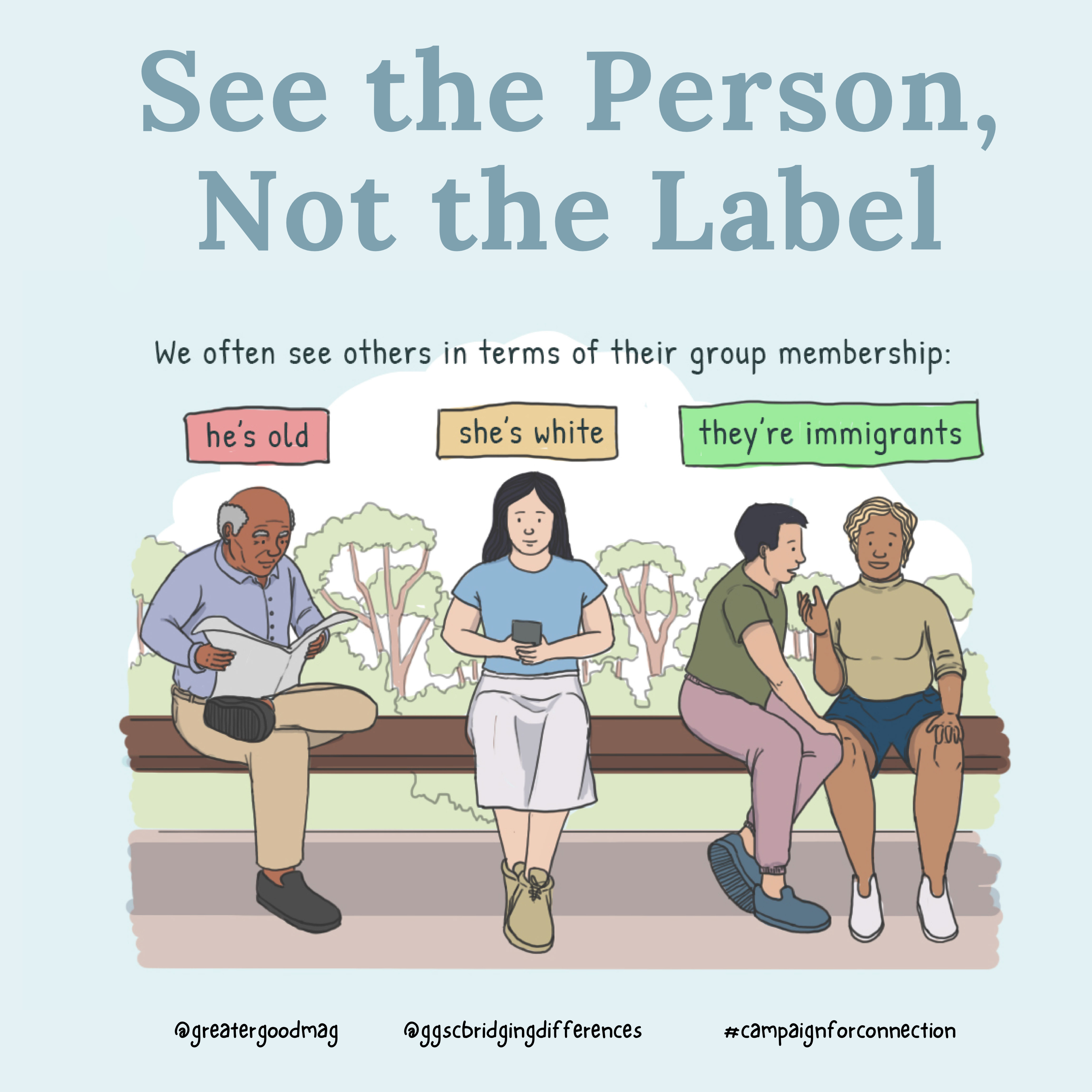
View/Download the Illustration
Skill #2: Expand Your Views and Circles: Challenge yourself to go beyond common stereotypes. Engage with someone from a different group, or explore content that reveals unexpected narratives. This practice not only broadens your perspective but also strengthens connections by replacing superficial judgments with real-world insights.
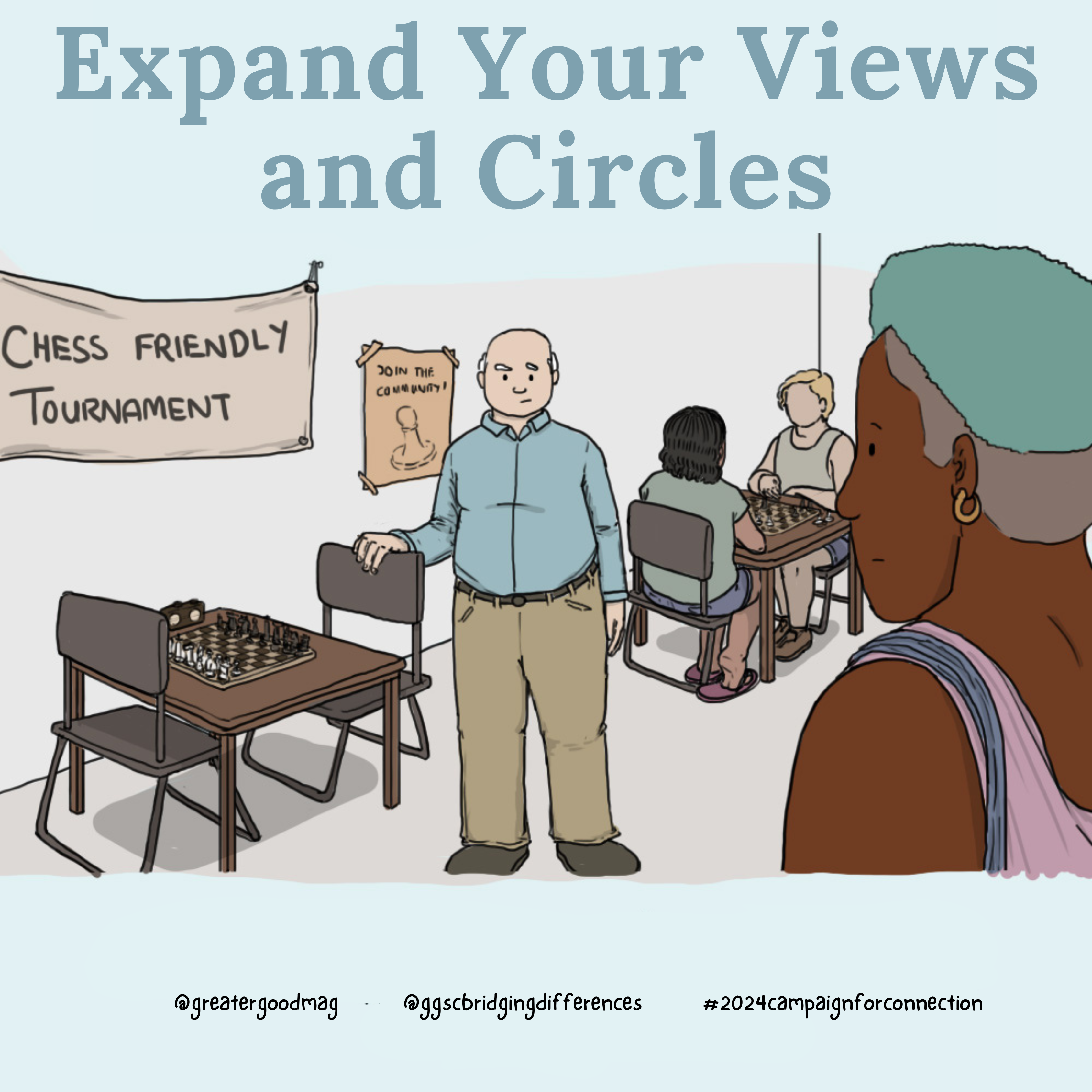
View/Download the Illustration
Skill #3: Listen with Compassion: Studies find that when we feel listened to during disagreements, we feel more socially connected to our conversation partners and can see our views more objectively. Research also shows that high-quality listening makes people more open-minded, less defensive and less focused on their self-interests.
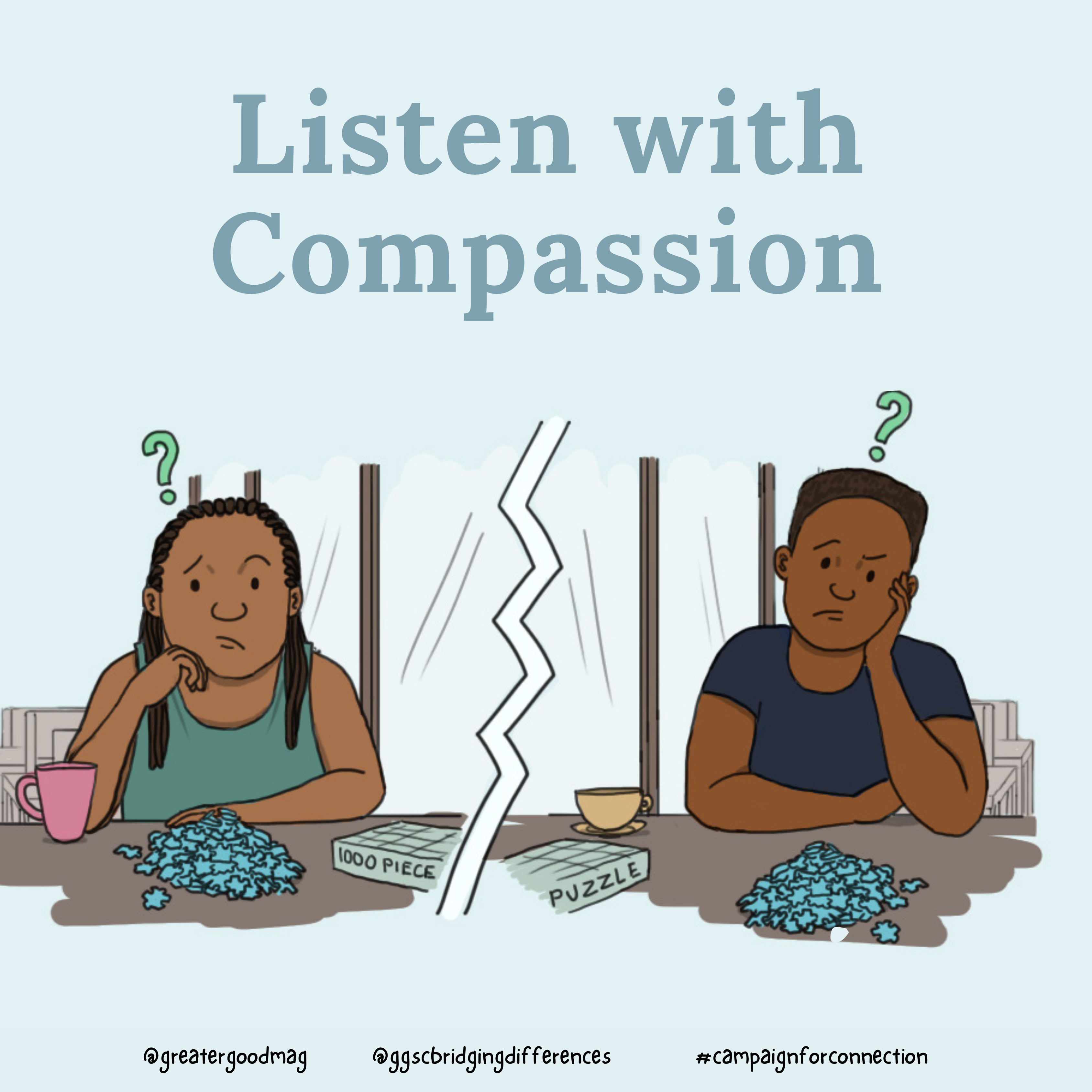
View/Download the Illustration
Skill #4: Practice Perspective Taking: Perspective taking can help us appreciate where others are coming from—all while holding firm to our own views. When you find it difficult to relate to someone’s viewpoint, try asking yourself, “What experiences might have shaped their views?” By considering this question—even if you don’t engage directly with the other person—you can broaden your perspective. With gained understanding, you may invite them into a conversation.
Note: No one should take the perspective of a group that dehumanizes them. Respect and acceptance need to be present.
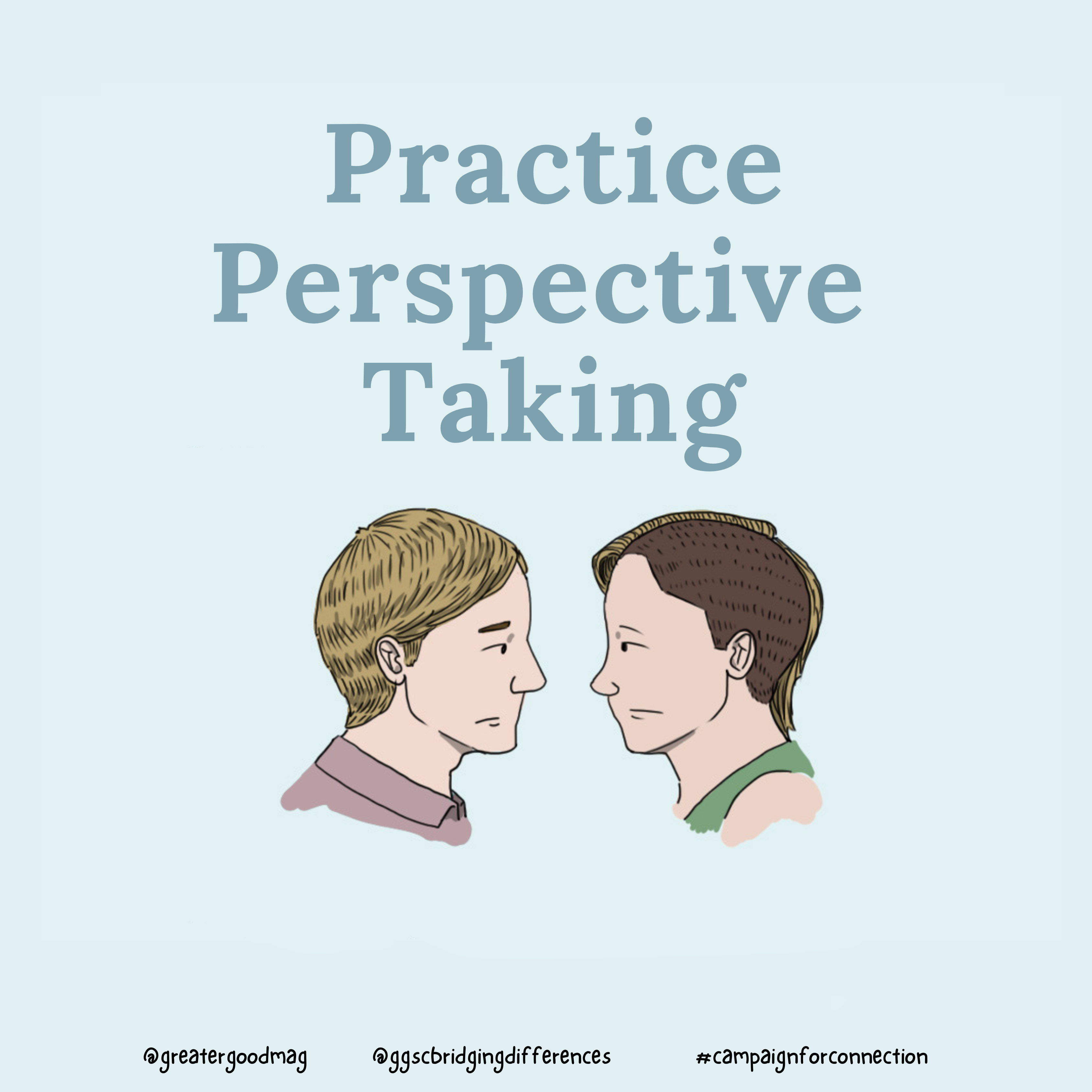
View/Download the Illustration
Skill #5 Finding Shared Identities: Even when someone seems different from you, chances are you can find at least one important identity you have in common-it could be a group both belong to (you're both Midwesterners) or a role you share (you're both parents). Often those shared identities are bigger and more significant than our differences.
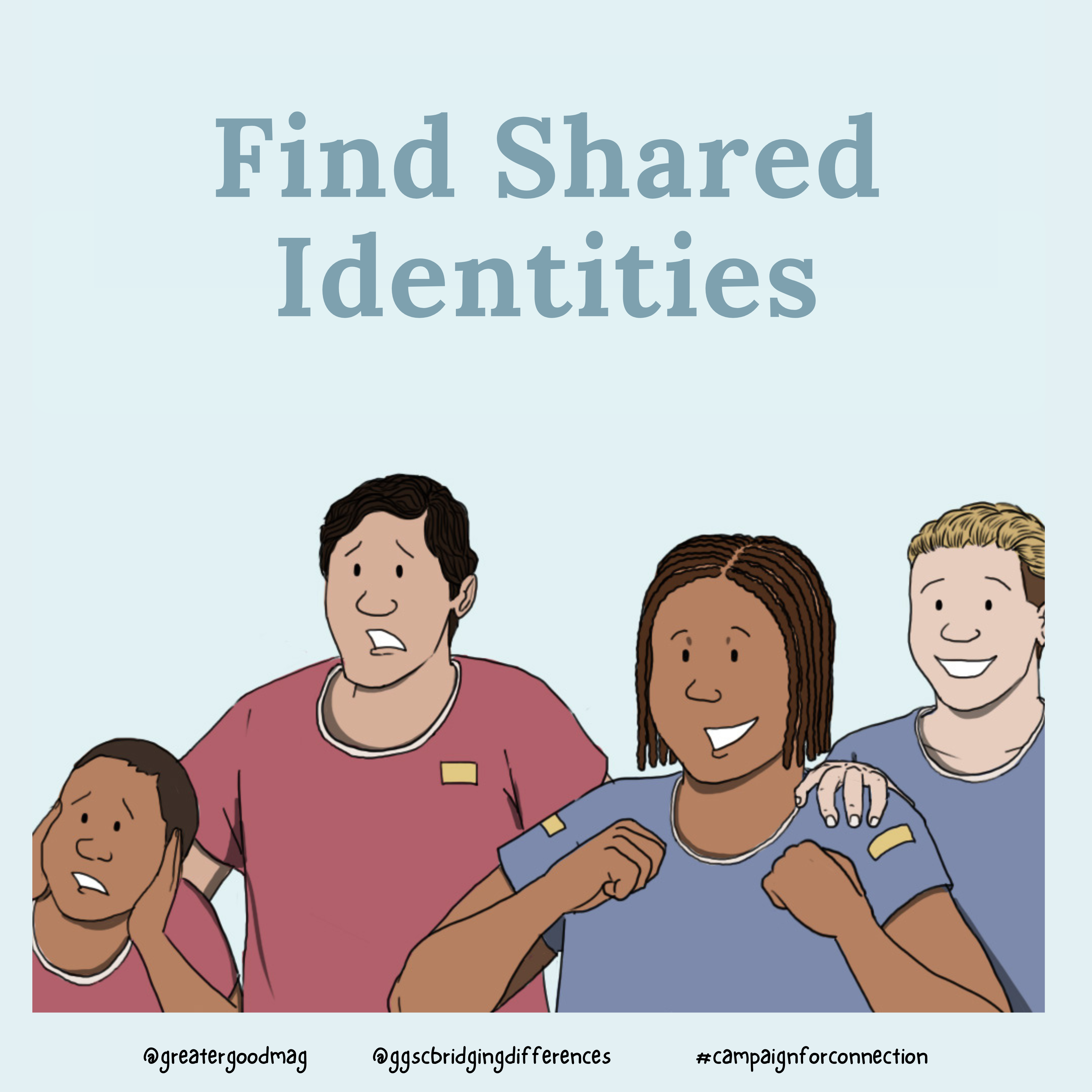
View/Download the Illustration
Skill#6 Self-Distancing: When conversations get heated, emotions can take over, making it hard to engage constructively. Self-distancing encourages you to view yourself from an outsider's perspective and talk about yourself in the third person—such as saying, "Jane is so angry" instead of "I'm so angry".
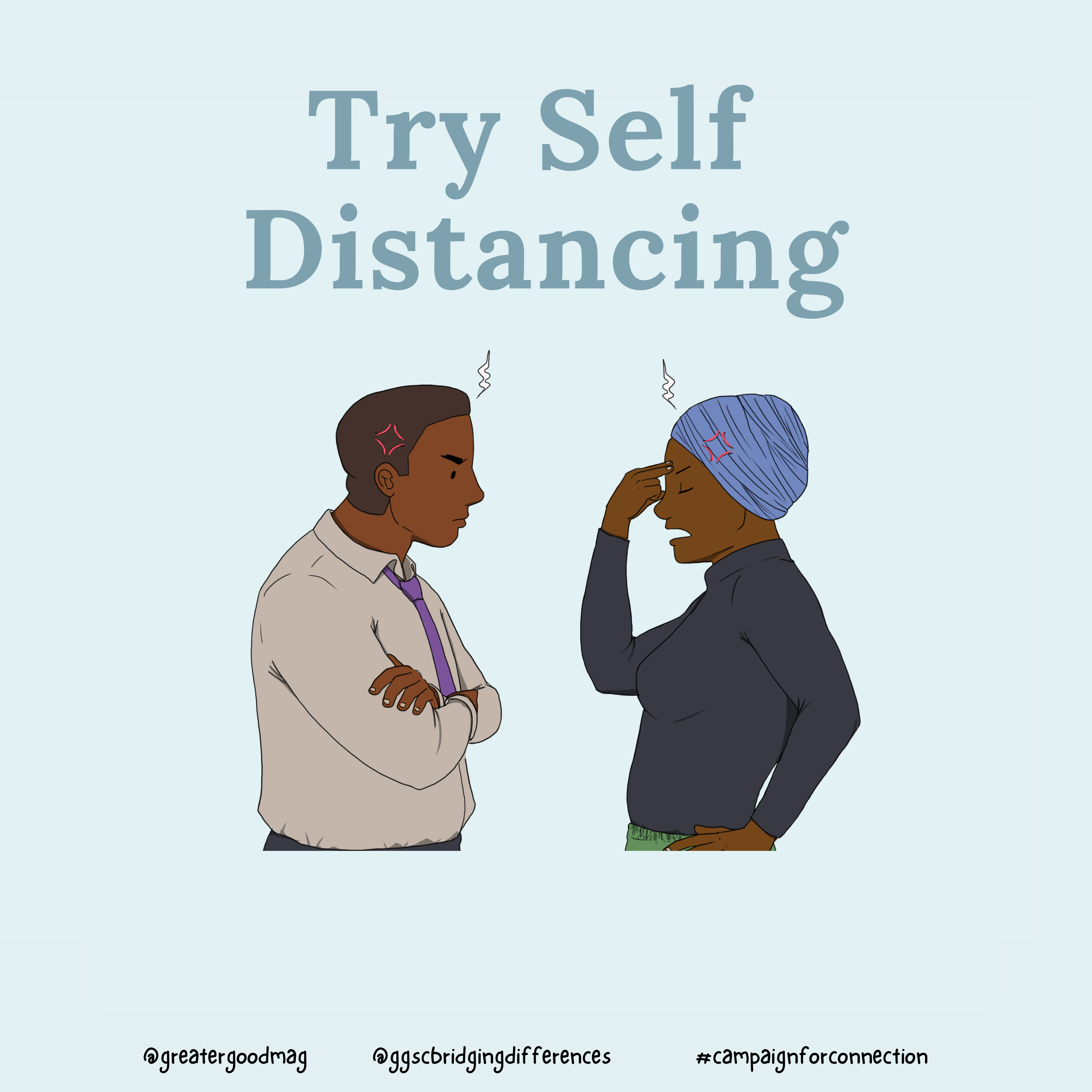
View/Download the Illustration
Skill# 7 Identify Common Goals: Despite our differences, we’re more willing and able to put those differences aside when we identify a shared goal that we need to work together to achieve. Focusing on common goals can shift our perceptions of each other from adversaries to collaborators.
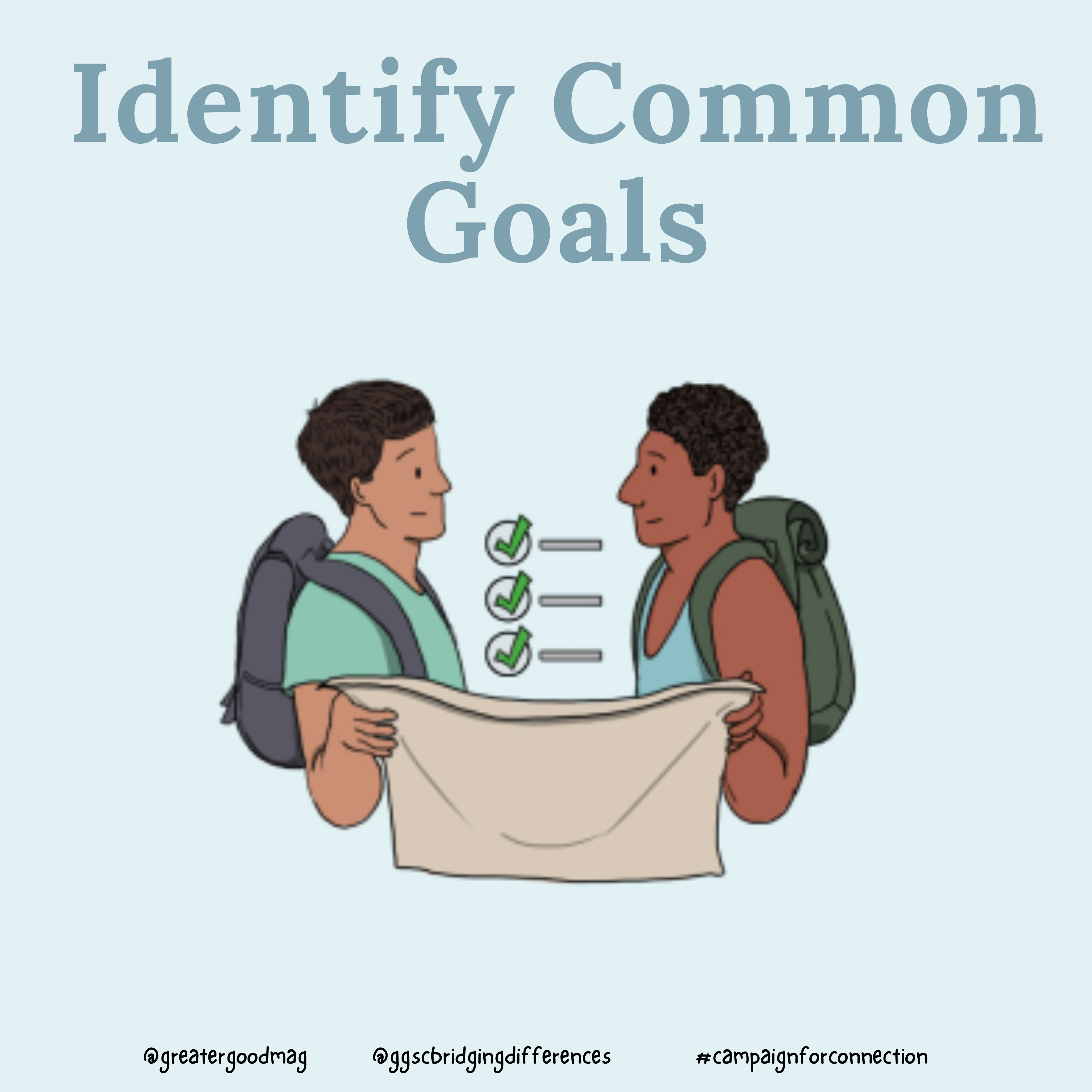
View/Download the Illustration

Research tells us that three out of four Americans view political hostility and divisiveness as a serious issue and hope for a less polarized country. If you want to help bridge these divides, join the 7-Day Campaign for Connection Challenge! Each day, we’ll introduce a science-based skill to help you connect with others that seem different from us. The challenge is active and ongoing!
Join our 7-Day Campaign for Connection Challenge
Bridging Differences has been featured in leading publications, podcasts, and broadcast platforms dedicated to deepening human understanding, bridging divides, and promoting emotional well-being.
Explores evidence-based strategies to improve dialogue, understanding, and relationships across social and political divides.
Highlights the power of love to strengthen the social fabric, bridge divides, and contribute to a good, meaningful life.
Sharing how forgiveness can help improve health and well-being, strengthen relationships, and combat cycles of violence between groups.
Raising awareness of research on intellectual humility and its implications.
To raise awareness about the importance of a sense of purpose at various stages of life—from childhood to young adulthood to elderhood.
Will support programs and multimedia resources to help parents raise caring, courageous kids.
Examines the engagement with and impact of well-being practices to understand what "fits" best for whom, and advance the field of precision well-being
Supports new research on gratitude and applies this research to education, health care, and business.
To help teens develop a stronger sense of purpose at a critical juncture in their lives.
Comprehensive overviews of research on generosity, gratitude, and other key GGSC topics.
Promote rigorous studies of interventions for strengthening emotional well-being, drawing from Greater Good in Action (GGIA).

“We scientists need partnerships with organizations like the GGSC because we’re not experts in reaching loads of people on a regular basis. Providing sustained delivery of content that’s thoughtful, not over-the-top, appropriately measured, and empirically grounded—that’s what the GGSC does better than anybody.”